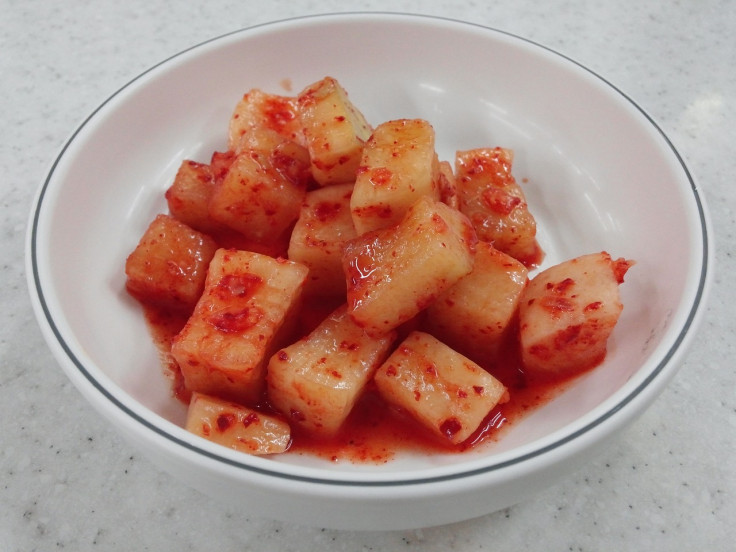
The Korean classic, kimchi, is not just known for its taste. Apart from the probiotic benefits, the popular spicy fermented pickle is also used in blood sugar management, reducing inflammation, and protecting heart health. A recent study has found that the daily use of kimchi up to three servings could help reduce the risk of obesity in men.
Kimchi is prepared by salting and fermenting vegetables such as celery, cabbage, Chinese turnip, and cucumber with various seasonings, such as onion, garlic, and fish sauce.
Earlier studies have shown that Lactobacillus brevis and L. plantarum, the probiotic elements isolated from kimchi had beneficial effects in reducing obesity.
The researchers of the current study published in BMJ Open explored if regular consumption of kimchi could cut the risk of overall obesity, and abdominal obesity, which is particularly harmful to health.
The study involved 115,726 participants who were part of the Health Examinees (HEXA) study that examined the factors that affect long-term health issues in Korean adults over the age of 40.
The dietary intake of the participants was assessed using a food frequency questionnaire that measured the frequency with which the participants ate 106 food items during the previous year. They were allowed to choose from options like never or seldom, or up to 3 times a day.
Total kimchi intake included the use of baechu (cabbage kimchi), kkakdugi (radish kimchi), nabak and dongchimi (watery kimchi), and others, such as mustard greens kimchi.
The researchers noted down the height, weight, and waist circumference of the participants and calculated their Body Mass Index (BMI). Individuals with a BMI of 18.5 were categorized as underweight, those with a BMI ranging from 18.5 to 25 were considered to have a normal weight, and those with a BMI exceeding 25 were classified as having obesity.
When the waist circumference was at least 90 cm for men and at least 85 cm for women, they were marked as people with abdominal obesity. Around 36% of the men and 25% of the women were obese.
The results showed that those participants who ate five or more servings of total kimchi had higher weight, larger waist size, and more chances of obesity.
"The results indicated a J-shaped curve, possibly because higher consumption is associated with higher intake of total energy, carbohydrates, protein, fat, sodium and cooked rice," the news release said.
"But after accounting for potentially influential factors, eating up to 3 daily servings of total kimchi was associated with an 11% lower prevalence of obesity compared with less than 1 daily serving. In men, 3 or more daily servings of baechu kimchi were associated with a 10% lower prevalence of obesity and a 10% lower prevalence of abdominal obesity compared with less than 1 daily serving. In women, 2-3 daily servings of this type of kimchi were associated with an 8% lower prevalence of obesity, while 1–2 servings/day were associated with a 6% lower prevalence of abdominal obesity," the researchers wrote.
Since it is an observational study, the study does not establish the cause. A limitation of the study is that the food frequency questionnaires may not always accurately identify quantities, and the findings may not be generalizable to people in other parts of the world.







